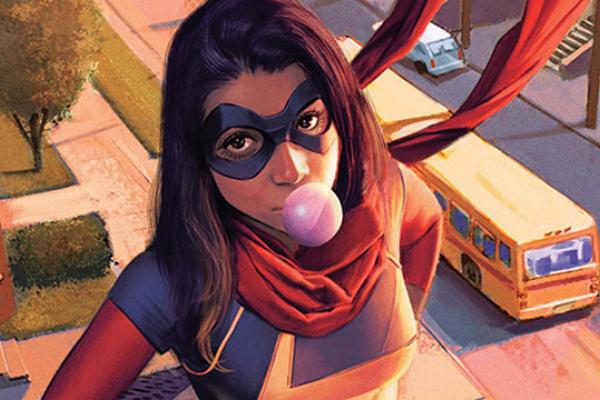I REMEMBER THE FIRST TIME someone told me I couldn’t do something because I was a girl. I was in preschool, preparing for an epic game of Teenage Mutant Ninja Turtles with a group of boys. I was playing April O’Neil, the Turtles’ journalist ally. As we started our game of pretend, my teacher came over to ask what we were doing.
“Playing Teenage Mutant Ninja Turtles,” I responded.
“Oh, you shouldn’t be playing that.”
“But I’m April,” I explained. “I’m a girl.”
“No, girls don’t play games like that,” she told me, and directed me toward the finger paints.
Whatever my teacher’s intentions, the damage was done. From that day on, superheroes and all things related were a “boy thing.” That meant the X-Men, Batman, Superman, and, yes, Donatello and his human-reptile hybrid team were all off-limits. I eventually grew to love comics as a teenager and an adult, but I was aware that they rarely featured anyone other than white men (or, occasionally, heavily objectified women) as the heroes.
Thank goodness for Kamala Khan.
Kamala is the teenage protagonist of Marvel Comics’ rebooted Ms. Marvel series. She’s a clever, funny 16-year-old living in Jersey City, N.J., who, in addition to having superpowers, writes superhero fan fiction, plays video games, and struggles with parent-enforced curfews. She also happens to be the second-generation daughter of Pakistani immigrants and a practicing Muslim.
Read the Full Article

